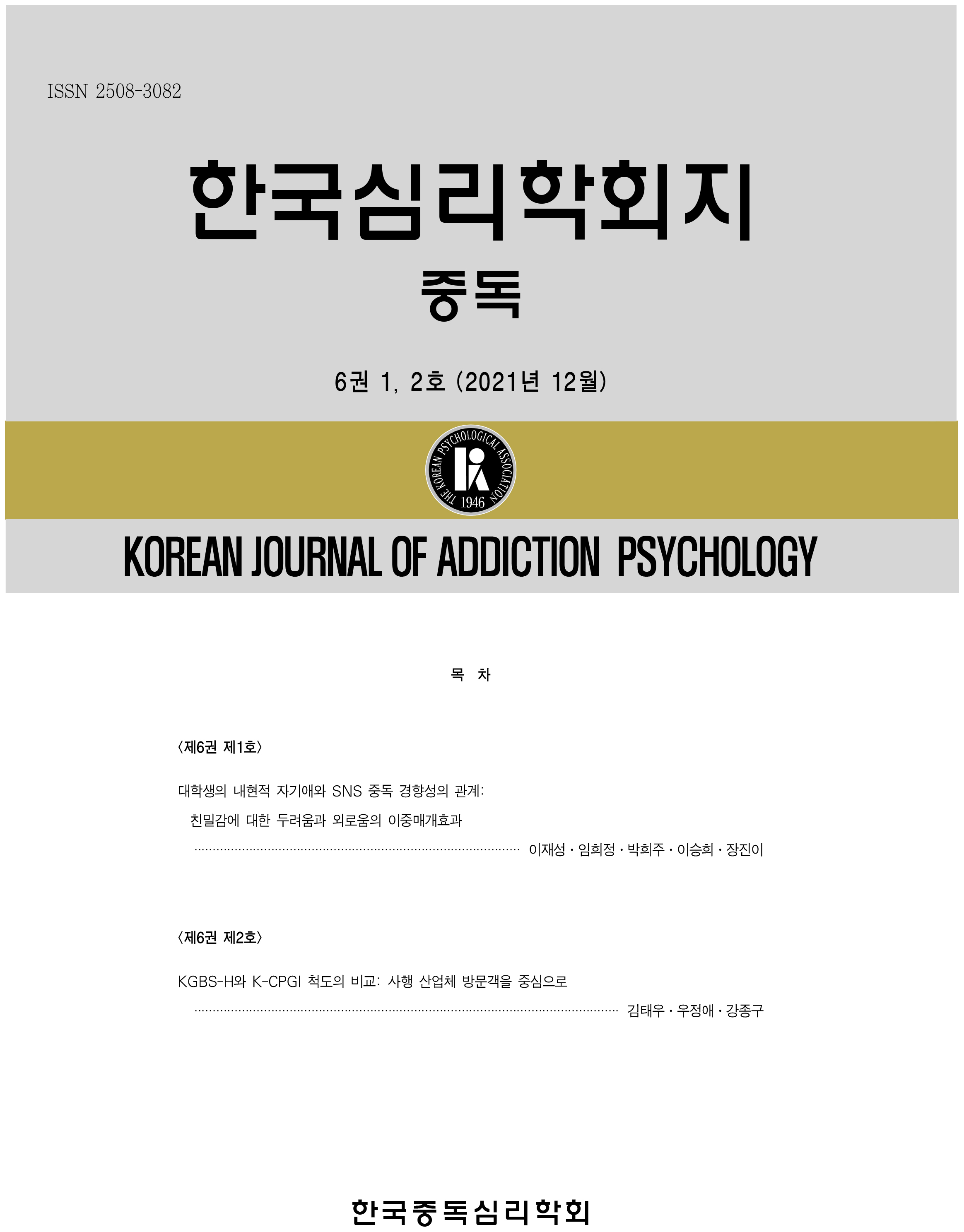A.A. 참여자의 경험: 제9단계 실천을 중심으로
Experience of A.A. Participants: Focusing on the Practice of the 9th Step
조성희(Sung-Hee Cho) (백석대학교 상담대학원 중독상담학과)
초록
본 연구의 목적은 A.A. 12단계를 실천하는 알코올사용장애자의 제9단계 경험의 본질을 살펴보는 것이다. 이를 위해 A.A.에 참여하며 10년 이상 단주를 유지하고 있는 알코올사용장애자 10명을 선정하여 심층 면담으로 자료를 수집하였다. 수집된 자료는 Colaizzi의 현상학적 방법을 이용하여 분석하였으며 190개 의미단위, 55개 주제, 20개 주제군이 도출되었다. 주제군은 ‘병든 상태로 중독에 빠짐’, ‘살기 위해서 A.A.에 몰입함’, ‘A.A.에서 사랑과 신뢰와 희망을 경험함’, ‘재발에 대한 두려움과 새로운 삶에 대한 희망으로 보상의 필요성을 느낌’, ‘보상을 해야 한다는 사실에 분노와 두려움을 느끼며 뒤로 미룸’, ‘못 다한 보상으로 인하여 과거에 얽매임’, ‘보상이 모든 문제를 해결하지는 못 함을 깨달음’, ‘제9단계를 실천하며 그릇된 자만심에 빠지지 않도록 경계함’, ‘겸손한 태도로 나의 잘못에만 집중함’, ‘마음을 짓누르고 있던 원한과 죄책감이 걷혀 지고, 내면에 빛이 들어 옴’, ‘세상에 융화되어 함께 살아가는 태도로 변화함’, ‘내가 저지른 잘못을 정확하게 알게 됨’, ‘나와 타인에게 떳떳하고 당당해짐’, ‘기도로 간청하는 중에 용서를 체험하고 신을 만남’, ‘나를 먼저 낮춤으로써 역으로 존중받음’, ‘나의 변화를 느낀 가족이 참아 왔던 고통을 쏟아내는 것을 경험함’, ‘가족과의 사이에 벽이 허물어지며 관계가 깊어짐’, ‘보상은 결코 완료할 수 없음을 느낌’, ‘끊임없이 잘못을 시인하고 수정해 나감’, ‘회복의 깊이만큼 보상이 확장되고 성숙해져 감’ 등이다. 본 연구 결과는 제9단계 경험의 본질로서 중독치료 현장에서 내담자를 이해하는데 실제적으로 활용될 수 있는 자료가 된다는 점에 연구의 의의가 있다.
- keywords
- 알코올사용장애, 제9단계, 보상, 현상학적 연구
Abstract
The objective of this study is to explore the 9th step practice experience for A.A. participants with Alcohol Use Disorder. To this objective, 10 subjects participated in the study, who have been attending A.A. and maintaining sobriety over 10 years. Data were collected by use of in-depth interviews. The collected data were analyzed using Colaizzi’s phenomenological method, and derived 190 concepts, 55 themes, and 20 theme clusters. The results are ‘Addicted by illness’, ‘Focus on A.A. to live’, ‘Experiencing love, trust and hope in A.A.’, ‘Feeling the need for making amends with fear of relapse and hope for a new life’, ‘Postpone making amends while feeling anger and fear‘, ‘Being stuck in the past due to unfinished amends’, ‘Realize that making amends don’t solve all problems’, ‘Careful not to fall into pride while practicing the ninth step’, ‘Focus on only my problems with a humble attitude’, ‘The resentment and guilt that weighed on my heart was lifted, and the light came inside’, ‘Attitude toward the world has changed in a positive way’, ‘Realize what I have done wrong exactly’, ‘Being proud of myself and others’, ‘Experiencing forgiveness and encountering God while pleading in prayer’, ‘Being respected by putting myself first’, ‘Experiencing the family who felt my change, pouring out the pain they had endured’, ‘The relationship with family deepens’, ‘Feeling that the reward can never be completed’, ‘Constantly practicing making amends’, ‘As recovery progresses, the amends area expands and matures’. The result is significantly useful in understanding clients in addiction treatment fields.
- keywords
- Alcohol use disorder, 9th step, Make amends, Phenomenological study
- 투고일Submission Date
- 2022-09-02
- 수정일Revised Date
- 게재확정일Accepted Date
- 2022-12-31
- 다운로드 수
- 조회수
- 0KCI 피인용수
- 0WOS 피인용수


